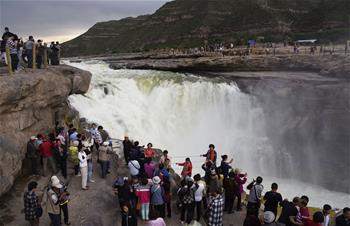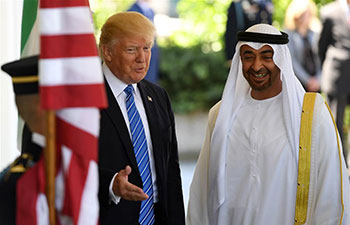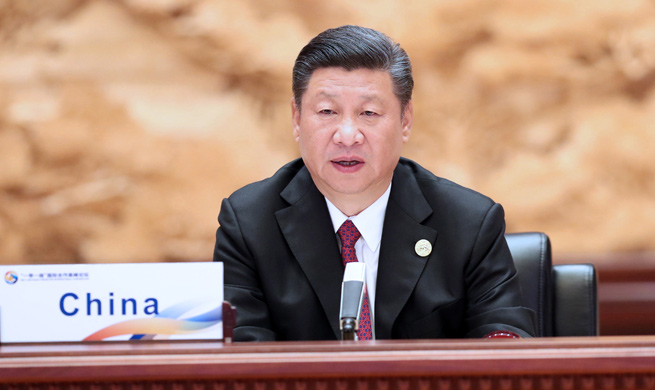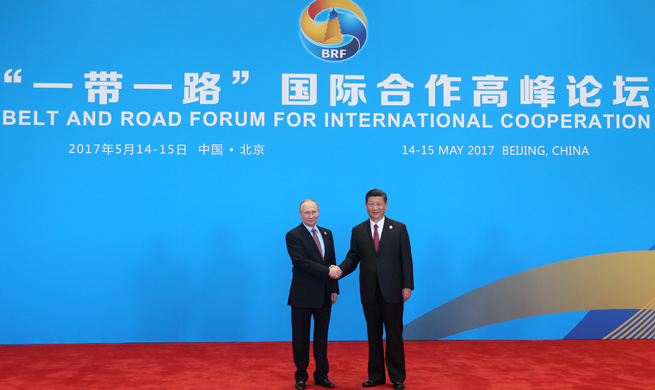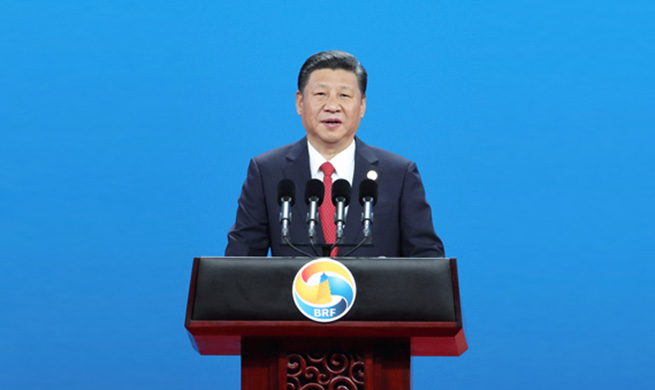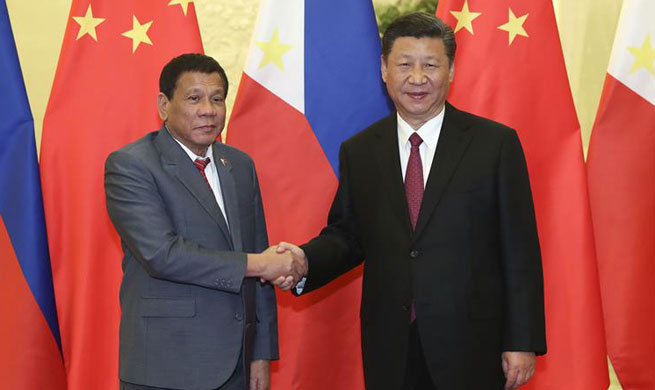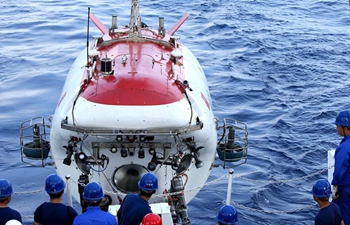by Xinhua writer Zhang Yuan
BERLIN, May 15 (Xinhua) -- German Chancellor Angela Merkel and newly elected French President Emmanuel Macron met here Monday to address a range of prickly issues concerning the two countries as well as EU amid inner differences and doubts from outside.
Some German media outlets had dubbed the meeting as the beginning of "Mekron" era before it kicked off, noting that the like-minded two politicians would enhance Franco-German ties and create a reason of hope in the trouble-riddled regional bloc.
IS "MEKRON" ERA COMING?
One optimistic sign was that Merkel and Macron seemed to hit it off in their first gathering.
Their talks, lasting for about an hour, covered some ground-breaking themes like EU reforms, as Merkel and Macron said they all agreed to change some existing treaties in order to strengthen the 28-member union.
"Europe can only prosper when France and Germany prosper," she noted.
Her statement was echoed by the 39-year-old Macron, who said that "there is absolutely no taboo for us here."
Germany and France have traditionally been regarded as the driving force behind European integration, but the Brexit spillovers and the rising far-rights on the continent have cast shadows on their efforts to some extent.
EU integration supporters in the two countries were emboldened recently, as Macron defeated the rightist opponent Marine Le Pen, while Merkel's pro-EU Christian Democratic Union (CDU) stood firm during three state elections in a row.
PRO-EU IN DIFFERENT WAYS
Despite all the good talk about the meeting and the messages released in it, some analysts warned Merkel and Macron might have envisioned different structures in the EU, which could put the two countries at odds.
Der Spiegel said that Macron has long wanted a union that gives Brussels greater powers, instead of seeing Berlin "steer the wheel."
The new host of Elysee Palace had earlier suggested setup of a European finance ministerial post and a budget for the eurozone, something widely seen as an attempt to transfer more legitimacy from national governments to the EU and could raise eyebrows in Berlin.
He also backs the issuing of joint Euro Bonds, which also seems suspicious in the eyes of Merkel's CDU party.
Last Monday, Merkel told her party members that Germany would not need to change its economic course just because Macron was elected.
There are also a number of skeptics within Merkel's government that have objected to Macron's closer integration calls, for fear of the possible aftermaths that Germany may have to offer "free rides" while suffering more threats on the job and security fronts.




